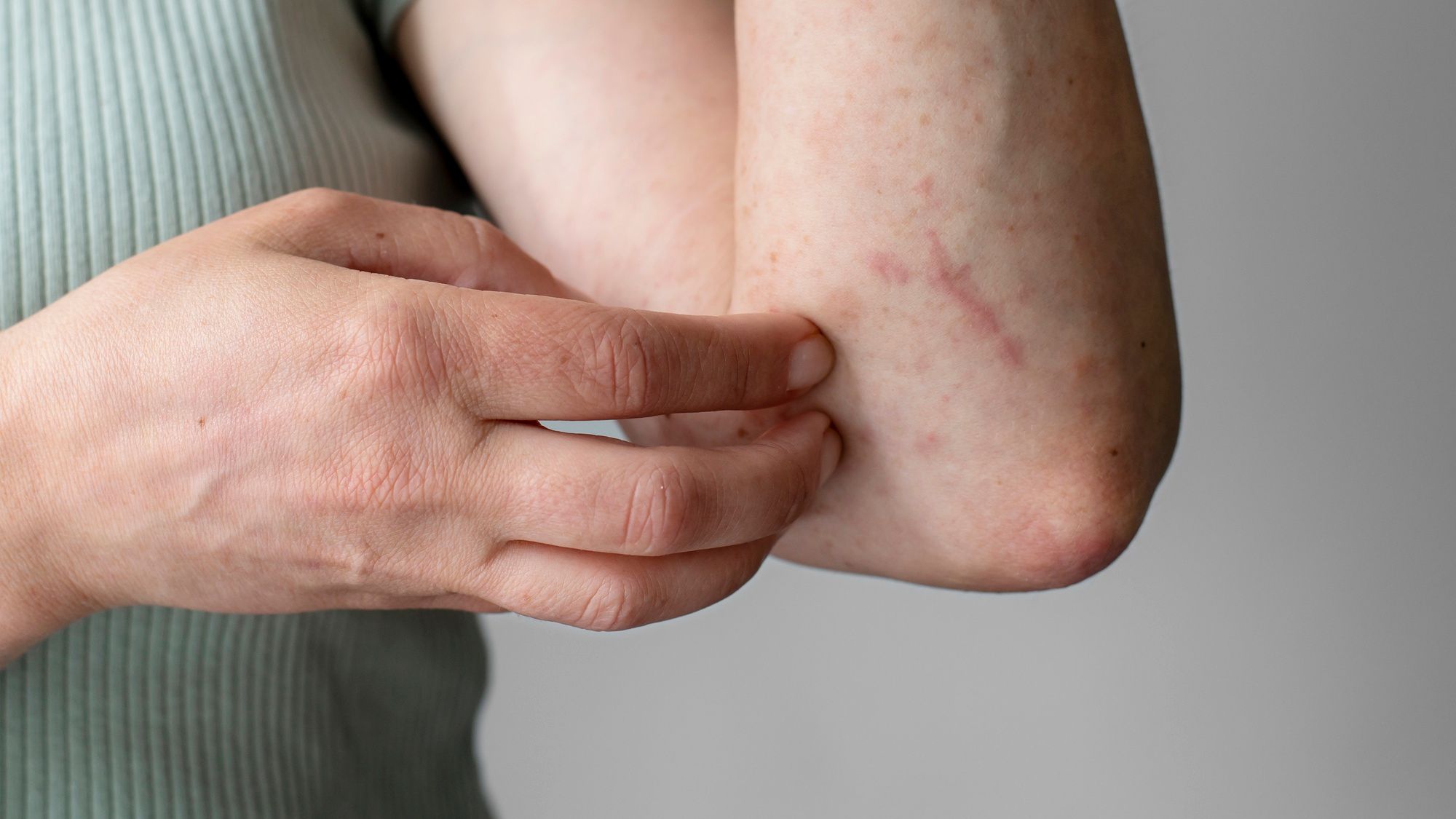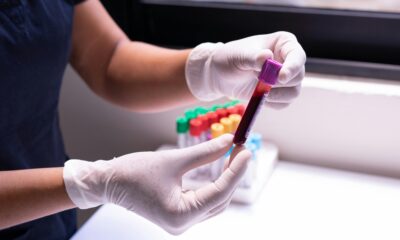Health
Burns and Scalds: First Aid Dos and Don’ts
Published
11 months agoon

Accidents are an unfortunate reality of life, and among the most common mishaps are burns and scalds. Whether it’s a hurried cooking escapade that ends in a small kitchen fire, an unexpected encounter with hot liquids, or even a simple touch to a scorching surface – burns and scalds can catch us off guard. In moments like these, knowing the right steps to take can make a world of difference.
Understanding Burns and Scalds
Before we dive into the first aid dos and don’ts, let’s understand what burns and scalds actually are. Burns are injuries to the skin and underlying tissues caused by heat, electricity, chemicals, or radiation. Scalds, on the other hand, are specifically caused by hot liquids or steam. The severity of burns is often classified into three levels:
- First-degree burns: These are superficial burns that affect only the outer layer of skin. They’re characterized by redness, pain, and mild swelling. Sunburn is a common example of a first-degree burn.
- Second-degree burns: These burns penetrate deeper, affecting both the outer and underlying layers of skin. They result in redness, intense pain, blistering, and swelling.
- Third-degree burns: The most severe type, third-degree burns go through all layers of the skin and can even damage the underlying tissues. The skin may appear charred or white, and the affected area might be numb due to nerve damage.
Dos and Don’ts of First Aid for Burns and Scalds
When faced with burns or scalds, it’s crucial to follow the right steps to provide immediate relief and prevent further damage. Here are the dos and don’ts to keep in mind:
Dos:
Assess the Situation: Before you jump into action, ensure the safety of both the victim and yourself. If the source of the burn or scald is still present, remove the person from harm’s way.
Cool the Burn: For minor burns (first-degree and small second-degree burns), gently cool the affected area under cool (not cold) running water for about 10-20 minutes. This helps to reduce pain and prevent the burn from worsening. Do not use ice or very cold water as it can damage the skin.
Remove Constrictive Items: If the burn is on an extremity and there are no blisters, gently remove constrictive items like rings or bracelets. This is important as swelling might occur.
Cover with a Clean Cloth: After cooling the burn, cover it with a clean, non-stick cloth or sterile gauze to prevent infection. Avoid using adhesive bandages directly on the burn.
Use Over-the-Counter Pain Relief: If the pain is manageable, you can use over-the-counter pain relief medications following the recommended dosage.
Seek Medical Attention: For third-degree burns or burns that cover a large area, seek professional medical help immediately. Also, if the burn becomes infected, seek medical attention promptly.
Stay Hydrated: Encourage the victim to drink fluids to stay hydrated, as burns can cause dehydration.
Don’ts:
Pop Blisters: If blisters form on the burn, do not pop them. Blisters act as a protective barrier against infection. Popping them can increase the risk of infection.
Apply Butter or Oil: Contrary to old beliefs, applying butter, oil, or other home remedies to burns can trap heat and worsen the injury. Stick to clean water cooling and sterile dressings.
Use Adhesive Bandages Directly: Avoid placing adhesive bandages or tape directly onto the burn. They can stick to the wound and cause further damage when removed.
Use Ice: Ice can cause frostbite and damage the already injured skin. Stick to cool (not cold) running water for cooling the burn.
Break Blisters: Breaking blisters can introduce bacteria and lead to infections. Allow them to heal naturally.
Use Cotton Balls: Cotton balls or cotton pads can leave fibers on the wound and increase the risk of infection. Opt for non-stick dressings instead.
The Role of First Aid Training
While knowing the first aid dos and don’ts for burns and scalds is incredibly valuable, imagine having a comprehensive skill set that extends beyond these scenarios. This is where the world of first aid courses steps in—a realm of knowledge and training that equips you to handle a wide range of emergencies with confidence.
First aid courses go beyond theoretical knowledge. Training organizations such as Skills Training College aim to empower you with practical skills to provide immediate assistance in various situations. From CPR to wound care, and from choking emergencies to managing fractures, these courses arm you with the ability to respond effectively.
First aid training equips you with the knowledge and skills to effectively respond to various emergencies, including burns and scalds. Having this training empowers you to take immediate action and provide the right assistance while waiting for professional medical help.
First aid training goes beyond basic knowledge—it empowers you with the confidence and skills to effectively handle emergencies.
The Takeaway
Being prepared to respond to burns and scalds is essential for everyone. By understanding and following the dos and don’ts of first aid, and especially with the added advantage of first aid courses, you become a valuable asset in emergency situations.
Remember, accidents can happen to anyone, anytime. Equipping yourself with the knowledge and skills from Local First Aid Training Course Canberra Can make all the difference in ensuring a positive outcome during these critical moments.
Recent News


4 Amazing Trips for Your Family
Choosing somewhere for a family vacation that would pique the attention of adults and kids alike can be a fun...


Customising Your Makeup with Blendable Blush Options
In cosmetics, one’s face is a canvas for self-expression and creativity. Among the myriad of products available, blush is a...


The Benefits of Regular Home Maintenance
Regular home maintenance is essential for maintaining and even raising the value of your house. A proactive approach to repairs...


Understanding the Importance of SEO in Adelaide
In the digital marketplace, Adelaide businesses are in a continuous contest to gain the attention of their target audiences. With...


Breaking Down the Numbers: Understanding the Average Traveling Nurses Pay
The open road, adventure, and the chance to heal – travel nursing promises an undeniable allure. But amidst the excitement,...


Dealing with Oily Skin in Summer: Tips and Tricks
As the temperature rises, those with oily skin often face an additional challenge—maintaining a clear and balanced complexion. Excess oil...


Mountain Wedding Ideas for 2024
A mountain wedding is a stunning choice for couples who cherish nature and desire a distinctive wedding experience. Whether you...


3 Of The Best Ways To Keep Your Salon Clean
It is of the utmost importance to ensure that a salon is kept scrupulously clean, not just for the sake...


3 Reasons You Should Get Blood Tests Every Year
Regular blood tests are essential for preserving general health and identifying potential problems early on. Medical professionals can evaluate your...


How to Make Your Next Crafts Project Pop
Crafting is a creative outlet that allows individuals to express themselves through various mediums such as paper crafts, sewing, painting,...
